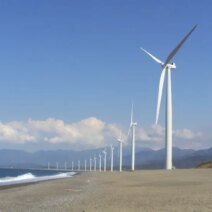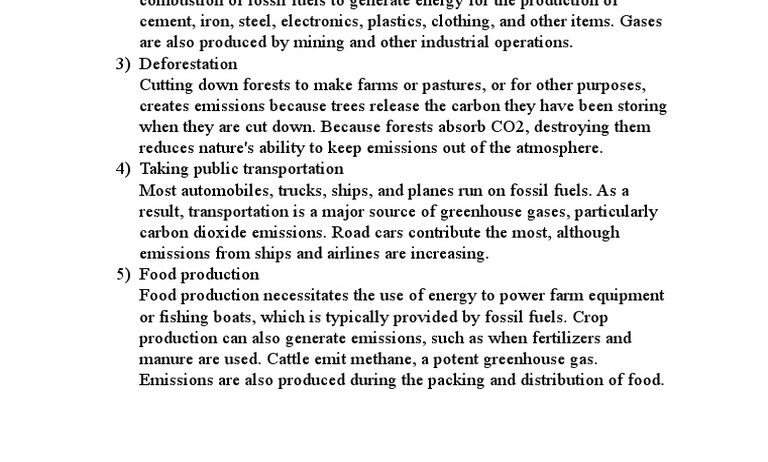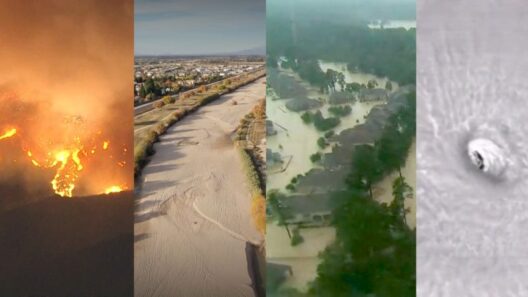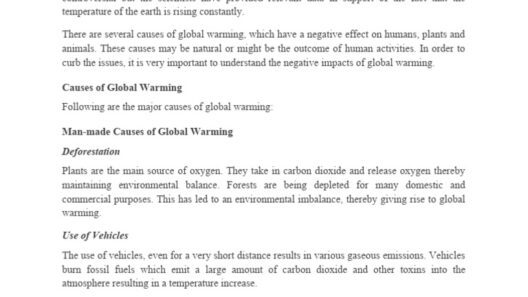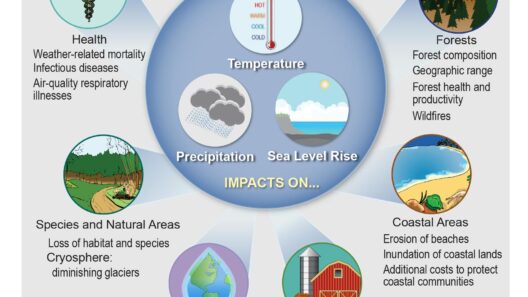Global warming, a pressing phenomenon that is at the forefront of contemporary environmental discourse, is primarily driven by the accumulation of greenhouse gases in the atmosphere. This intricate web of causality encompasses various contributors, each playing a distinctive role in exacerbating climate change. Understanding these primary factors is crucial for developing effective solutions to mitigate their impacts.
In this article, we will delve into the primary contributors to global warming, shedding light on the mechanisms that foster this gradual increase in global temperatures. Addressing common concerns regarding climate change, we will explore how human activity intertwines with natural processes to deepen this crisis.
Deforestation: The Greenhouse Effect’s Silent Contributor
One of the most significant contributors to global warming is deforestation. Trees play a vital role in absorbing carbon dioxide—a principal greenhouse gas. When forests are cleared for agriculture, urban development, or logging, not only is the carbon sequestered within those trees released back into the atmosphere, but the loss of trees also diminishes the planet’s capacity to absorb carbon in the future.
Brazil’s Amazon rainforest, often referred to as the “lungs of the Earth,” exemplifies the critical importance of maintaining forest ecosystems. Approximately 1.5 billion tons of carbon dioxide are emitted annually due to deforestation. Furthermore, the reduction of biodiversity in these areas can have cascading effects on ecosystems and their resilience to climate fluctuations.
Industrial Emissions: The Power of Production
Industrial activities are another major player in the escalation of global warming. Factories and power plants emit a multitude of greenhouse gases, primarily carbon dioxide (CO2) and methane (CH4), through fossil fuel combustion and various manufacturing processes. For instance, fossil fuel-based power generation is responsible for around 70% of global CO2 emissions, firmly intertwining economic development with environmental degradation.
The proliferation of industries, particularly in developing nations, has exacerbated this situation, often without stringent environmental regulations. As countries industrialize to improve living standards, the resultant surge in energy consumption leads to heightened greenhouse gas emissions. Transitioning to renewable energy sources such as solar, wind, and hydroelectric energy is imperative to counteract this trend and reduce reliance on fossil fuels.
Agricultural Practices: Beyond Just Growing Food
Agriculture is another sector deeply implicated in global warming. Modern agricultural practices, while crucial for feeding the world’s population, release considerable amounts of greenhouse gases. Livestock farming, especially cattle, contributes to methane emissions—a greenhouse gas significantly more potent than carbon dioxide in its heat-trapping capability.
Additionally, the extensive use of fertilizers and chemicals in crop production not only impacts soil health but also contributes to nitrous oxide emissions, another potent greenhouse gas. Furthermore, land-use changes associated with agriculture—such as draining wetlands and converting grasslands—can significantly exacerbate the greenhouse effect.
Transportation: Emissions on the Move
Transport plays a pivotal role in global greenhouse gas emissions, accounting for nearly 15% of global carbon dioxide emissions. The reliance on fossil fuel-powered vehicles, such as cars, trucks, and airplanes, results in significant emissions that contribute to global warming.
Urbanization has led to increased vehicular traffic, as cities expand and populations grow. Public transportation systems, although more efficient, still frequently depend on fossil fuels. Encouraging the adoption of electric vehicles and enhancing public transport systems can significantly reduce transportation-related emissions, paving the way for a sustainable future.
Waste Management: A Neglected Factor
A frequently overlooked contributor to global warming is waste management. Landfills produce methane, a potent greenhouse gas, during the decomposition of organic waste. This process is exacerbated when waste is improperly managed, and insufficient recycling or composting practices are in place.
Additionally, the process of producing and transporting goods generates emissions, and as consumption patterns shift towards a more wasteful culture, the impacts on climate change deepen. Implementing comprehensive recycling programs and promoting zero-waste lifestyles are essential strategies to mitigate the greenhouse gas emissions associated with waste management.
Natural Processes: Earth’s Own Conduits
While human activity plays a significant role in climate change, natural processes also contribute. Volcanic eruptions, for example, can release large quantities of CO2 and sulfur dioxide into the atmosphere, leading to temporary increases in global temperatures. However, these natural events occur on a much smaller scale compared to human-induced emissions.
Moreover, natural carbon sinks—like oceans and forests—while effective at absorbing CO2, are becoming overwhelmed by anthropogenic emissions. As the planet’s temperature rises, these sinks may lose their efficacy, creating a feedback loop that further accelerates global warming.
Conclusion: A Collective Call to Action
In addressing the multifaceted causes of global warming, it becomes clear that a collective response is paramount. Mitigating climate change requires concerted efforts at local, national, and global levels. Engaging in sustainable practices, supporting green technologies, and advocating for robust policies can pave the way for a healthier planet. Implementing solutions to curtail emissions across various sectors is no longer a choice; it is an imperative for preserving our environment and ensuring a livable future for generations to come.


